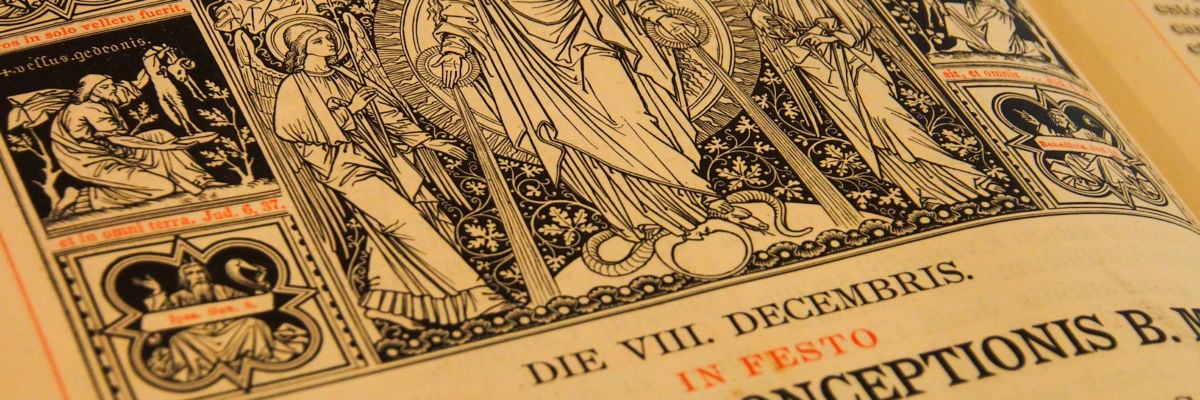

Is Latin More Efficacious than English in Exorcisms and Prayer?

Jimmy Akin delves into the intriguing topic of language efficacy in exorcisms. Contrary to popular belief, he reveals that the effectiveness of exorcisms isn’t tied to the age or “official” status of a language. Instead, it’s rooted in the faith and mindset of those involved. Learn how the authorization from the Church and the psychological impact of language choice can influence the outcome of exorcistic rituals, regardless of whether they are performed in Latin, Greek, or any other authorized tongue.
It is said that Latin is especially efficacious for prayer and exorcisms because it is the official language of the church. My question is this, for an Eastern Rite Catholic who would be under the authority of their church’s head, although the Pope’s authority is of course universal and preeminent, and have their own codes of canon law, would the native language of that church be more efficacious or similar in efficacy to prayers in Latin?
Or would this only apply to the ancient languages, for example Latin, Greek, Aramaic, Coptic, Hebrew, and possibly Church Slavonic and Arabic?
Well the only way to settle this question would be by doing experiments, and nobody has actually experimented in this way. So we don’t have a definitive answer. Even the idea that Latin is more efficacious than say English is anecdotal. It’s not something that’s been, that any exorcists to my knowledge have done a study on, you know, where you got two random populations of demoniacs and you exercise half of them in Latin and half of them in English and see which ones get delivered from demons the fastest. No one’s ever done that kind of study.
In fact you’d even want to do it double blind, but that would pose some special challenges.
But you know we still have anecdotal reports of maybe Latin’s more effective, and if that’s the case, well I can think of several reasons why that would be the case. First thing, I don’t think it has anything to do with the demons, because demons do not need human language.
They communicate their created spirits, their created intellects, and so they communicate mind to mind. Their own mode of communication is thus telepathic. So human language is something for humans. It really doesn’t engage angelic nature. So why would the choice of a human language affect a demon more than another human language? Well one reason could be it’s based on the authorization of the church. So if the church has authorized a language for use, then it would be more effective than a language the church has not authorized for use. But then that puts English on the same plane as Latin, because we have an English rite of exorcism that’s just a translation of the Latin rite of exorcism.
And so they would both have the advantage of being approved.
There’s also the fact though that Latin is sort of the standard or default or traditional language of the Latin church. And maybe that gives it a little extra oomph.
On the other hand, that leads us to a second consideration that could lead these,
lead Latin to be more effective than just standard English, if that’s the case. Because remember, this is just an anecdotal claim. But if it’s the case, one reason could be because it’s more meaningful to the humans involved, to the exorcist, to the demoniac.
If they view Latin as special in a way they don’t view English as special, then the Latin
would serve to strengthen their faith in God acting through this rite. And thus it might, that greater faith in God might make the rite more effective if the people have more faith in it. And so if the exorcist believes that Latin is going to be more effective, then it could be more effective. If the demoniac believes that Latin is going to be more effective to help freedom of the demon, then that might make it more effective.
Thus, so I can see both the authorization of the church and the psychological effect of Latin playing a role here. All the same principles would therefore apply to any other language that an exorcism is authorized in, either elsewhere in the Catholic Church or outside of the Catholic Church. Because you don’t have to be a Catholic to kick bad spirits out of people.
It’s actually, exorcistic rites are very common all over the world in other religions too.
And even Jesus acknowledged, for example, there were Jewish exorcists who were legitimately driving out demons.
In any event, if you’re, let’s say, in an Eastern rite of the Catholic Church, let’s say your church uses Greek or Aramaic or Old Church Slavonic as its traditional language. Well, and the rite is authorized in one of those languages, well then it’ll have the authorization efficacy.
And if psychologically you, you know, the people involved, either the exorcist or the demoniac or the assistants, view that language, whether it’s Greek or Aramaic or Old Church Slavonic as this is going to be extra effective, well then that would help increase your faith and help make it extra effective. So I don’t think it has anything to do with the age of the language in particular.
It’s not like demons care about old human languages because they don’t care about human language at all. But the effect of the language on the humans who are participating, that I can see having a notable effect by virtue of increasing their faith as the rite is performed, as well as the authorization that the church has given to that language.
Hey, thanks for watching. If you like this Catholic answer, be sure to like, subscribe, and check out our live streams Monday through Friday, 3 to 5 p.m. Pacific, or find the episode after on YouTube, your favorite podcast platform or our Catholic Answers app.

